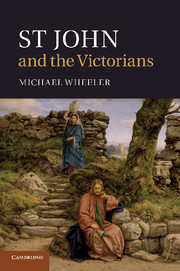Chapter 3 - The Light of the Word
Incarnation
Published online by Cambridge University Press: 05 December 2011
Summary
1: In the beginning was the Word, and the Word was with God, and the Word was God.
2: The same was in the beginning with God.
3: All things were made by him; and without him was not any thing made that was made.
4: In him was life; and the life was the light of men.
5: And the light shineth in darkness; and the darkness comprehended it not.
6: There was a man sent from God, whose name was John.
7: The same came for a witness, to bear witness of the Light, that all men through him might believe.
8: He was not that Light, but was sent to bear witness of that Light.
9: That was the true Light, which lighteth every man that cometh into the world.
10: He was in the world, and the world was made by him, and the world knew him not.
11: He came unto his own, and his own received him not.
12: But as many as received him, to them gave he power to become the sons of God, even to them that believe on his name:
13: Which were born, not of blood, nor of the will of the flesh, nor of the will of man, but of God.
14: And the Word was made flesh, and dwelt among us, (and we beheld his glory, the glory as of the only begotten of the Father,) full of grace and truth.
(John 1.1–14)
Light and Life
The prologue to John's gospel is described by many theologians today as a powerful piece of poetry, or as an early Christian hymn in which the opening of Genesis, and particularly the fiat, ‘Let there be light’, is revisited. For millions of listeners and viewers it is associated with the service of nine lessons and carols from King's College, Cambridge, broadcast on Christmas Eve, in which it is read as the culminating lesson, during which the congregation stands. The order of service is Victorian in origin. The King's College version, which dates from 1918 and was first broadcast in 1928, drew upon the service compiled in 1880 by Bishop Edward White Benson, for use in the temporary wooden building which then served as his cathedral at Truro; and the recessional hymn in the King's College service, Charles Wesley's ‘Hark! the herald angels sing’, was first married to Mendelssohn's familiar tune by a Victorian musician, William Hayman Cummings, in 1855.
- Type
- Chapter
- Information
- St John and the Victorians , pp. 52 - 82Publisher: Cambridge University PressPrint publication year: 2011



